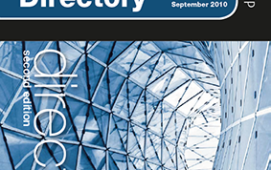
The Bank for International Settlements (BIS) has confirmed plans for a new Innovation Hub to encourage international collaboration on financial technology within the central banking community. Launching initially at existing BIS facilities in Hong Kong and Basel, the hub will eventually span multiple locations with a third spoke due in Singapore within the first phase and additional centres across the Americas and Europe added as part of the second phase of implementation.
“The IT revolution knows no borders and therefore has repercussions in multiple locations simultaneously,” explains Jens Weidmann, Chairman of the BIS Board of Directors. “The establishment of the BIS Innovation Hub will enable central banks to extend their existing collaboration with a view to identifying relevant trends in technology, supporting these developments where this is consistent with their mandate, and keeping abreast of regulatory requirements with the objective of safeguarding financial stability. There are significant economies of scale in such an endeavour, and the BIS is the ideal vehicle to realise them.”
Mark Carney, Chair of the Economic Consultative Committee, welcomes the move. “There is a new economy emerging driven by changes in technology, demographics and the environment. While the private sector is driving these innovations, their efforts will be more effective if the hard and soft infrastructure of the global financial system support this innovation, promote resilience and level the playing field on which to compete. Central banks have a major role to play. The BIS Innovation Hub will foster collaboration between central banks and, by extension, help the private sector to fully realise these major opportunities.”
The role of the Hub will be to identify and develop in-depth insights into critical trends in technology affecting central banking; develop public goods in the technology space geared towards improving the functioning of the global financial system; and serve as a focal point for a network of central bank experts on innovation.
The set-up and ongoing work of the Hub Centres will be carried out with the support of the host central banks: the Swiss National Bank, Hong Kong Monetary Authority, and Monetary Authority of Singapore.
Subscribe to our newsletter




